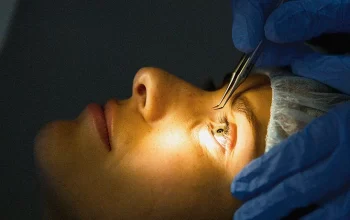Sleep is essential to all mammals; without it, animals would suffer from reduced attention span, emotional instability, increased sensitivity to pain and metabolic and cardiovascular conditions.
Researchers from UCSC have documented elephant seals entering paralytic REM sleep during their diving dives – marking one of the first instances known of wild marine mammals entering REM sleep during foraging trips.
What is Sleep?
At any given moment during the day, billions of brain cells communicate by exchanging electrical impulses. A messy scribble of activity shows up on an electroencephalogram (EEG). But as soon as sleep arrives, your brain waves switch into more rhythmic patterns that show your actual progress during restful slumber.
Sleep plays an essential role in energy conservation and storage. Most body systems shut down, while your metabolism shifts to conserve fat and glycogen stores.
Sleep is essential to learning and memory formation; prolonged lack of restful slumber has even been linked with dementia and Alzheimer’s. Modern medicine seeks to understand the intricate processes that govern wakefulness, sleep and dreaming – sleep researchers like Wu dedicate much of their daytime trying to figure it all out.
Stages of Sleep
As you progress through the sleep cycle, each stage serves a distinct purpose. On average, an optimal night of restful slumber consists of cycling through four non-REM stages and one cycle of REM sleep.
N1 Sleep, otherwise known as light or drowsiness sleep, occurs at the initial non-REM sleep phase and includes eye movement slowdown and muscle activity reduction. If interrupted during this stage, awakenings during this stage will leave one feeling groggy and confused.
After N1 sleep is achieved, N2 sleep begins. In this deep stage of slumber, muscles relax further as breathing and heart rate rates decrease while K-complexes form in brain waves – awakening can be challenging from this phase, making sufficient N2 rest essential to getting quality rest each night.
REM Sleep
Dreams typically arise during REM sleep, which typically accounts for 20-25% of your total sleeping time. This term refers to rapid eye movements seen behind closed lids as well as brain activity similar to what occurs during wakefulness.
Researchers have discovered that REM sleep may help solidify new memories and make them easier to access when awake. Furthermore, they’ve observed that babies tend to receive more REM sleep than adults which could play an integral part in brain development and the structure of the central nervous system.
During REM sleep, muscles become temporarily immobilized so you won’t act out your dreams. However, this only holds true in certain areas of the brain – others remain active and appear as large electrical potentials known as ponto-geniculo-occipital spikes.
Circadian Rhythms
Circadian rhythms are 24-hour cycles that directly influence your sleep-wake cycle. They’re driven by environmental cues such as light and the natural cycle of day and night; when they sync up with their surroundings they’re known as entrained; otherwise known as desynchronized.
These internal clocks are reset by a region of the brain called the hypothalamus, which integrates rhythmic information from all other parts of the body. For instance, light and darkness sensors in retina of eye via special group of neurons known as Retinohypothalamic tract provide input.
People with different circadian rhythms, commonly referred to as chronotypes, may prefer sleeping later during work and school days compared to others. Furthermore, they might find it more difficult than normal to wake up in the morning and feel energetic throughout their days.
Sleep Deprivation
Lack of sleep can create numerous health risks, including compromised immunity, increased heart disease risk, memory and concentration problems, difficulty learning new information and reduced IQ scores. Not sleeping enough also increases your chance of car accidents while hampering work performance.
Sleep deprivation symptoms include daytime drowsiness, frustration, mood changes, poor attention and memory function and difficulty focusing. Other effects may include eye twitching, yawning excessive blinking dozing off unknowingly as well as feelings of tiredness and fatigue.
Sleep deprivation can range from temporary, such as when suffering from a bad cold or flu, to being caused by insomnia or other sleep disorders. Your doctor can help determine if this is happening by tracking your sleeping patterns or administering a questionnaire and physical exam.




